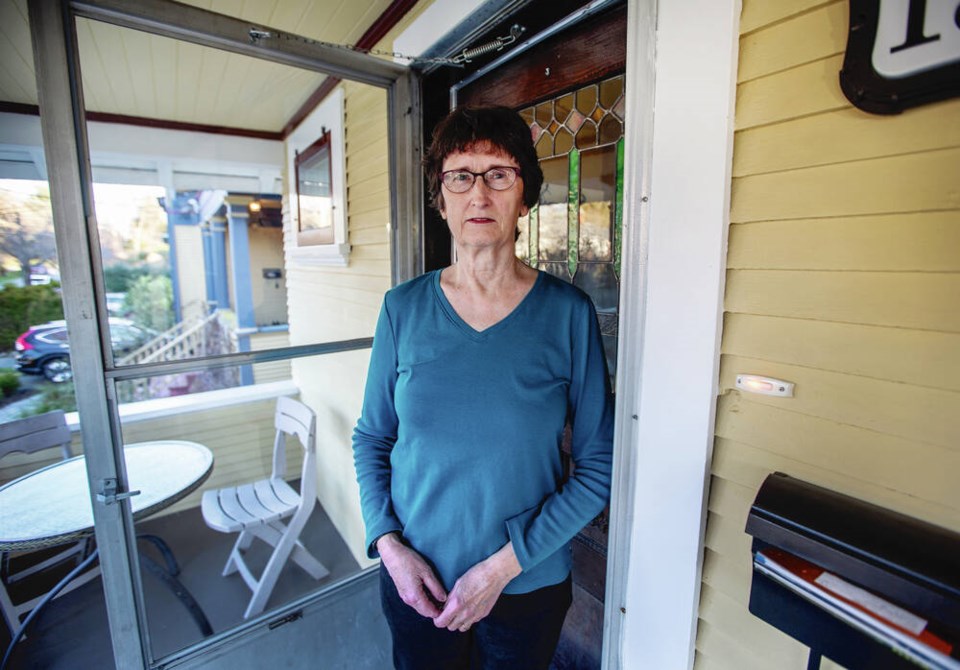As B.C. sheds almost all of its pandemic restrictions, some seniors are concerned about how to safely navigate a post-restriction pandemic world.
“We don’t know how to start re-engaging,” said Anne Sikstrom, 70, of Victoria, who says she has many friends age 70 and older — an identified high-risk group — who have underlying health conditions and aren’t sure how they are supposed to proceed amid a high number of new COVID cases and hospitalizations.
Sikstrom has asthma and her husband has diabetes and a pacemaker, which means they are at higher risk of complications from the highly transmissible Omicron variant, which can infect people who are vaccinated or who had the disease previously.
Capacity limits for personal and organized gatherings ended Wednesday night as long as masks, proof of vaccination and safety plans are used, hailing the return of everything from wedding receptions to celebrations of life, theatres to sports events, and bars and nightclubs. Mingling and dancing are back on the table.
Sikstrom said she strongly supports provincial health officer Dr. Bonnie Henry and her guidance throughout the pandemic, but she feels like she’s part of a real-time experiment.
“We feel we have no guidance as to what it is safe for us to do and not do,” said Sikstrom.“Is it safe to start having vaccinated, careful people back into our house? Distanced, or close up for a meal? Safe to eat in restaurants? With friends? Go to concerts? Go back to church?”
She has other practical concerns regarding bringing trades and service people into her home and people who work in high-risk settings.
Sikstrom said she and her husband, who have been fully vaccinated and boosted, have been very careful during the pandemic but have also taken, at times, calculated risks — they have travelled, visited family and attended church.
She said she and others just don’t want to take “undue risks.”
In announcing the reopening plans, Henry acknowledged that some people will feel vulnerable and have to make choices to protect their health.
“We know that for some people what we’re doing today will be really fast and will make them uncomfortable,” said Henry, adding, for others, it’s not fast enough. “They would like to see things going back to as if the virus was no longer here
Henry described the current phase of reopening as a transition from broad societal pandemic restrictions to personal risk management with the added protection of masks, vaccine cards and safety plans, “because we are not through the period yet where the risk is low enough.”
Henry said people will need to manage their individual risk while also protecting those around them.
Hospitalizations have peaked, but Omicron-driven COVID “is not an innocuous virus” and can have severe effects, particularly in people who don’t have a strong immune response, aren’t vaccinated, are immuno-compromised or older, she said.
The province is working on longer-term risk-mitigation plans for this group that are expected to be revealed in coming weeks, said Henry.
“It will be important in some situations that mask wearing will be something people do on an ongoing basis, and keeping gatherings small.”
Choosing to go to a social gathering, school or work will become individual decisions based on risk, said Henry, adding there may be those in the community, workplaces, or social circles whose vulnerabilities to infection or serious illness are not apparent. “That’s why we are saying respect people’s comfort levels.”
While the reopening was received as positive news this week, Henry warned not to lose sight of the fact that new variants are inevitable. “The journey ahead will be a challenge — and different — for all of us.”
B.C. Health Minister Adrian Dix said rapid tests will soon be made available for people in higher risks groups — particularly those who are older or identified as clinically extremely vulnerable.
Take-home tests are also going to children through schools, with each child to be offered a five-test kit to take home for their family’s use in case they become symptomatic.
As the inventory grows, the Health Ministry has also said it expects to start distributing the test kits at no cost to the broader population.
People who are older and immune-compromised will have priority access to PCR testing if they develop symptoms, while those same risk groups may also benefit from COVID-19 treatments that are coming online, said Henry.
Pandemic restrictions that remain in effect — including visiting restrictions to long-term care homes — will be reviewed by March 15 and April 12.



